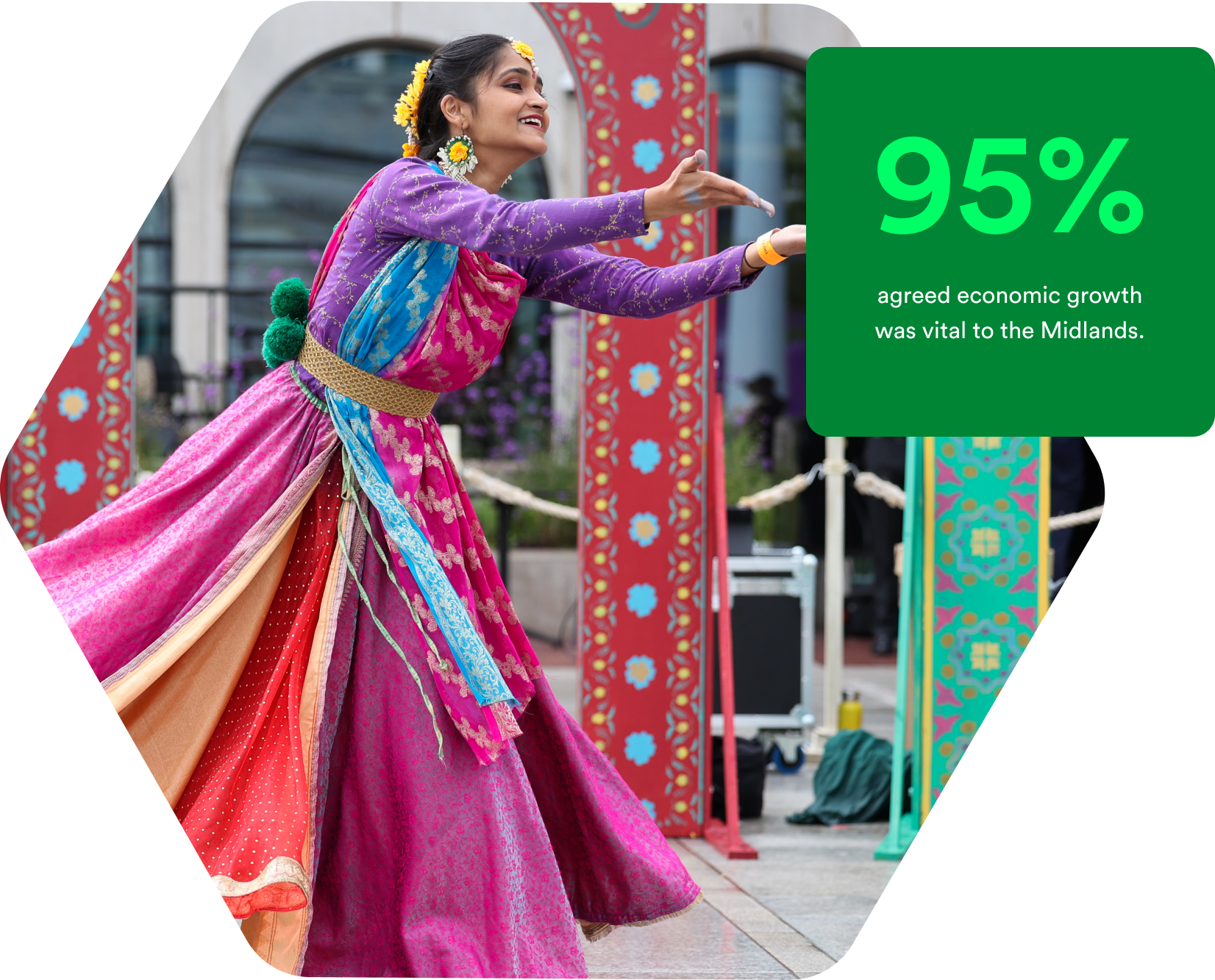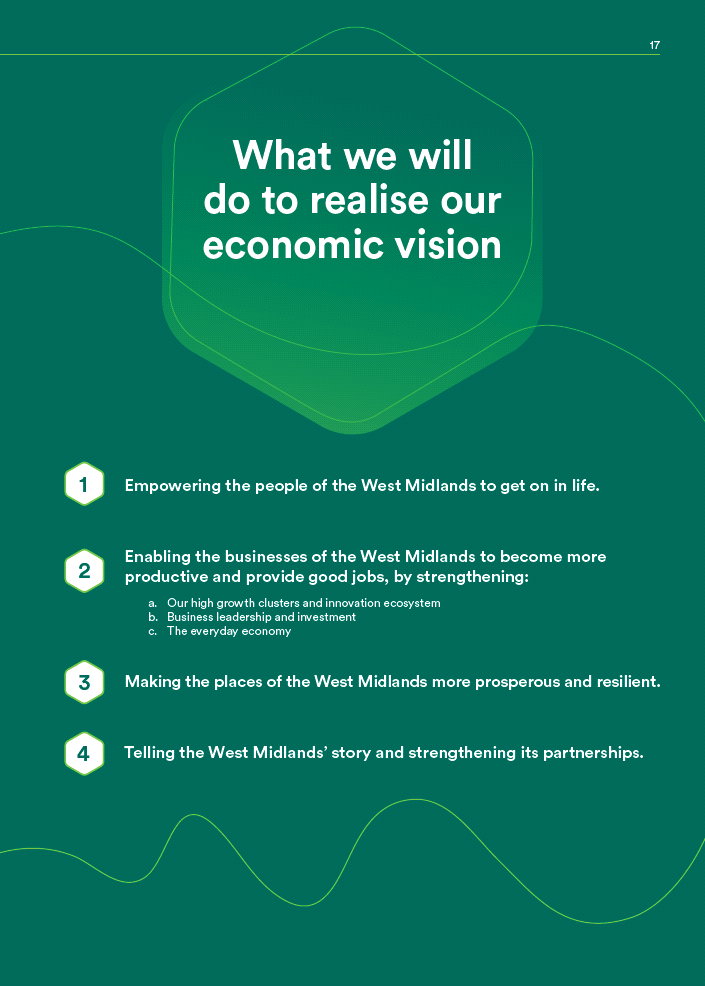Home > It Starts Here

The West Midlands’ distinctive foundations for inclusive growth
The West Midlands embraces change and challenges the status quo, empowering the next generation of disruptors. Here, aspiration and innovation thrive – rooted in our region’s distinctive foundations for growth.
Changes on the Horizon
Our Growth Plan must not only speak to the challenges we face today, but to the changes we expect to see in the coming decade and beyond.
International Trade and the West Midlands
Global trade is shifting post-Covid, with focus on resilient supply chains and ethical sourcing. The UK’s stability boosts West Midlands’ appeal. New trade deals with India, the EU, and CPTPP open export markets, attract investment, and drive growth in aerospace, clean energy, and innovation, enhancing regional competitiveness and global engagement. These developments increase the appeal of the West Midlands for inward investment and support capital investment in innovation, infrastructure, and supply chains.
Security and defence
The UK’s aspiration to invest 3% of GDP in defence in the next parliament presents major opportunities for the West Midlands economy. With strengths in advanced manufacturing, aerospace, cyber security, and innovation, the region can support defence production, attract investment, win contracts, and create high-value jobs while contributing to national security and economic growth.
The future of work
The future of work is shifting through automation, AI, and flexible working. In the West Midlands, evolving industries create high-value jobs and demand new skills. Investment in training, digital infrastructure, and urban renewal is vital. Remote and hybrid working models are reshaping city centres and transport needs. This opens opportunities to repurpose urban spaces and invest in digital infrastructure across towns and cities.
The West Midlands’ strong universities and innovation hubs can lead in developing the future-ready talent that we need.
The regional impacts of HS2
HS2 is already delivering economic benefits. Since its 2017 approval, developments near Curzon St, Interchange Station, and Washwood Heath have surged, projected to add £10bn to the local economy. HS2 has attracted major investment, including Knighthead Capital’s Sports Quarter in Birmingham, boosting growth and regeneration in the region.
Our Approach to Growth
Our Growth Plan is clear and specific about what our challenges are today and tomorrow, what we need to prioritise over the coming ten years, what we will deliver over the next three years to start to overcome them, what change would feel like for our residents and businesses, and what we need from central government to accelerate progress.
Our Growth Plan priorities are driven by the WMCA’s Inclusive Growth Framework, which helps to focus our investments on a shared set of economic, social and environmental goals.
Which regions overseas should the West Midlands learn from?
UK city-regions are often compared to London, leading to productivity strategies that don’t always fit local contexts.
To challenge this, we ran a study to find more relevant comparisons for the West Midlands. They identified multiple city-regions that once shared similar demographics, economy, and governance with the West Midlands but have since surpassed it in productivity.
These include eight European and global peers:
The study focused on learning from these places to shape more tailored and effective strategies for regional growth. This analysis was then used to develop future inclusive growth scenarios with consultancy firm Public First. These scenarios explored how the West Midlands could accelerate its economy by adopting sector-specific strategies from the comparator regions. For example:
 What we will do to realise our economic vision
What we will do to realise our economic vision
Strong partnership is key
The West Midlands Growth Plan is a shared vision uniting local authorities, businesses, institutions, and communities to transform the region’s economy. Led by WMCA, it promotes collaboration across borders to boost prosperity. A new annual Regional Growth Conference from 2026 will showcase collective progress and drive long-term regional impact.


